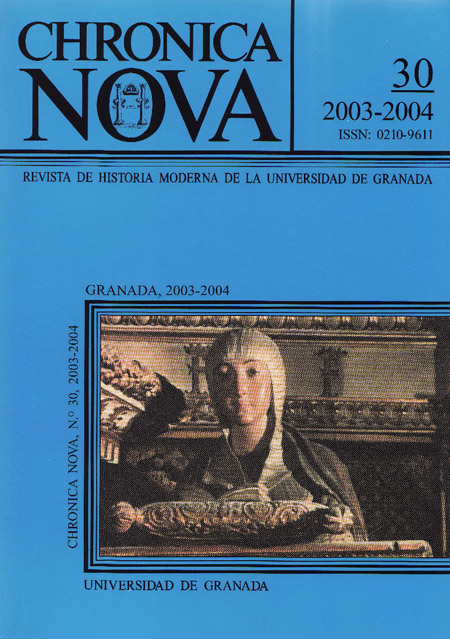Family and power in the early modern Castile. Aproach through the study of the local elite of Almansa in 17n century
DOI:
https://doi.org/10.30827/cn.v0i30.1901Keywords:
Castile, 17th century, Local elite, Strategies of social reproductionAbstract
In this work it is going to be analysed through a particular example (the two main families of the village of Almansa in the 17th Century) the means and ways —what has been denominated “strategies” in a generic way— with those that it counts all powerful family of the modern Castile to try to achieve the social reproduction of their members. Marriage and vinculation of goods (entailed estates) demostrate to have a first degree importance in these strategies that constitute the dominant groups, independent on the space in which they impose their dominance: if the marriage allow the formation of family alliances, and it is the only source that offer successors to the kind-group; the vinculation of goods offers to the descendants an economic and symbolic base that, grace to its static nature, facilitates its maintenance in the domain group.Downloads
Downloads
Published
How to Cite
Issue
Section
License
Nuestra revista se atiene a las recomendaciones para la implementación del Artículo 37 Difusión en Acceso Abierto de la Ley de la Ciencia, la Tecnología y la Innovación:
- Los/as autores/as cuyas contribuciones sean aceptadas para su publicación en esta revista conservarán el derecho no exclusivo de utilizar sus contribuciones con fines académicos, de investigación y educativos, incluyendo el auto-archivo o depósito de los artículos aceptados en repositorios institucionales o temáticos de acceso abierto de cualquier tipo en un plazo máximo de seis meses.
- Preferiblemente se permitirá el uso de la versión publicada de las contribuciones científicas, que estarán accesibles en abierto tan pronto como sea posible.
-
Que en caso de que el trabajo sea aprobado para su publicación, el/la autor/a autoriza de manera ilimitada en el tiempo a la entidad editora para que incluya dicho texto en Chronica Nova y pueda reproducirlo, editarlo, distribuirlo, exhibirlo y comunicarlo en el país y en el extranjero por medios impresos, electrónicos, CD, Internet o cualquier otro medio conocido o por conocer.






 ISSN-e: 2445-1908
ISSN-e: 2445-1908










